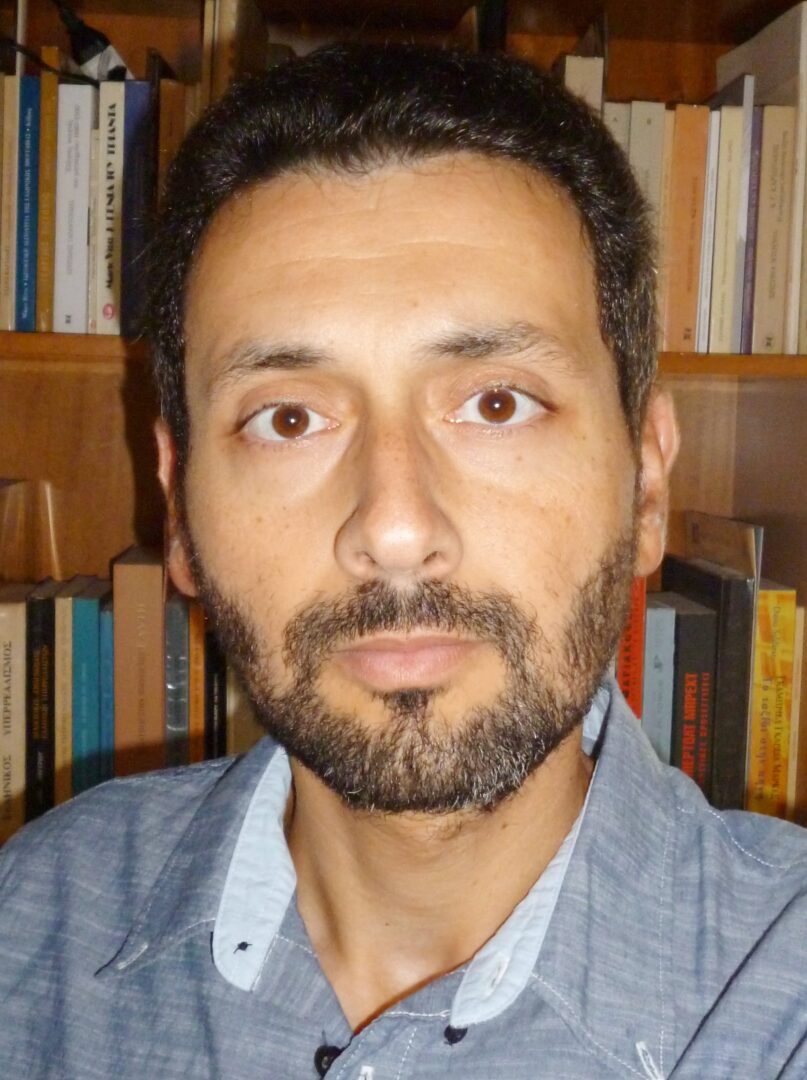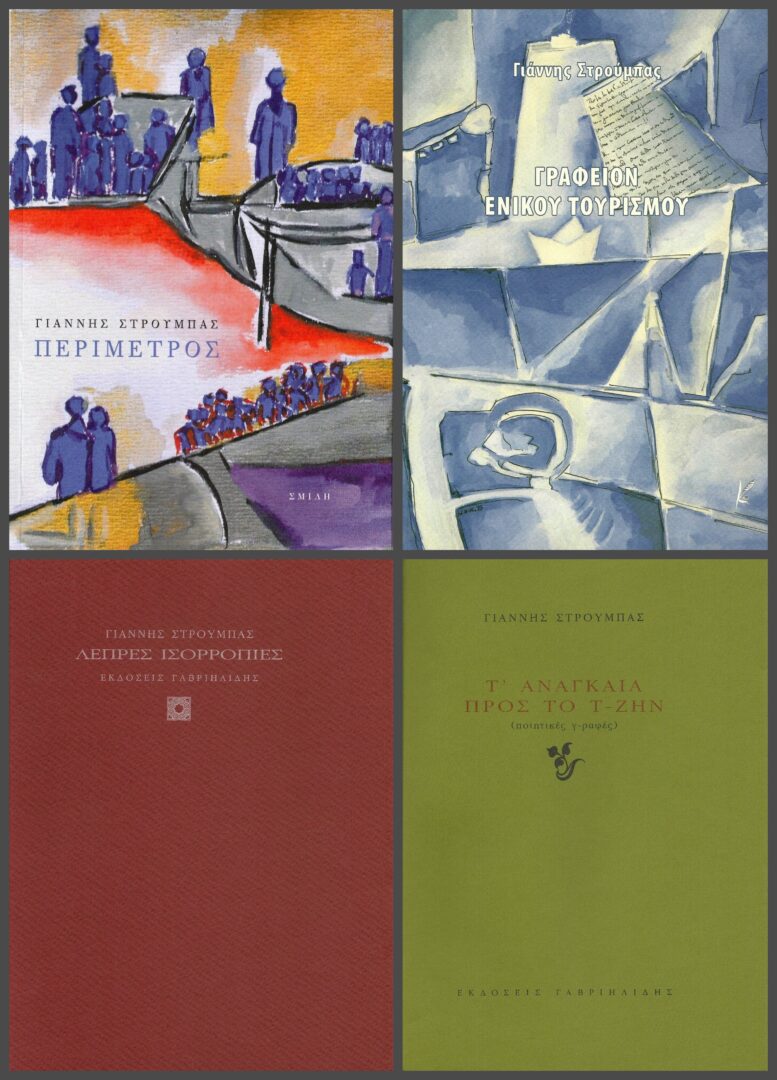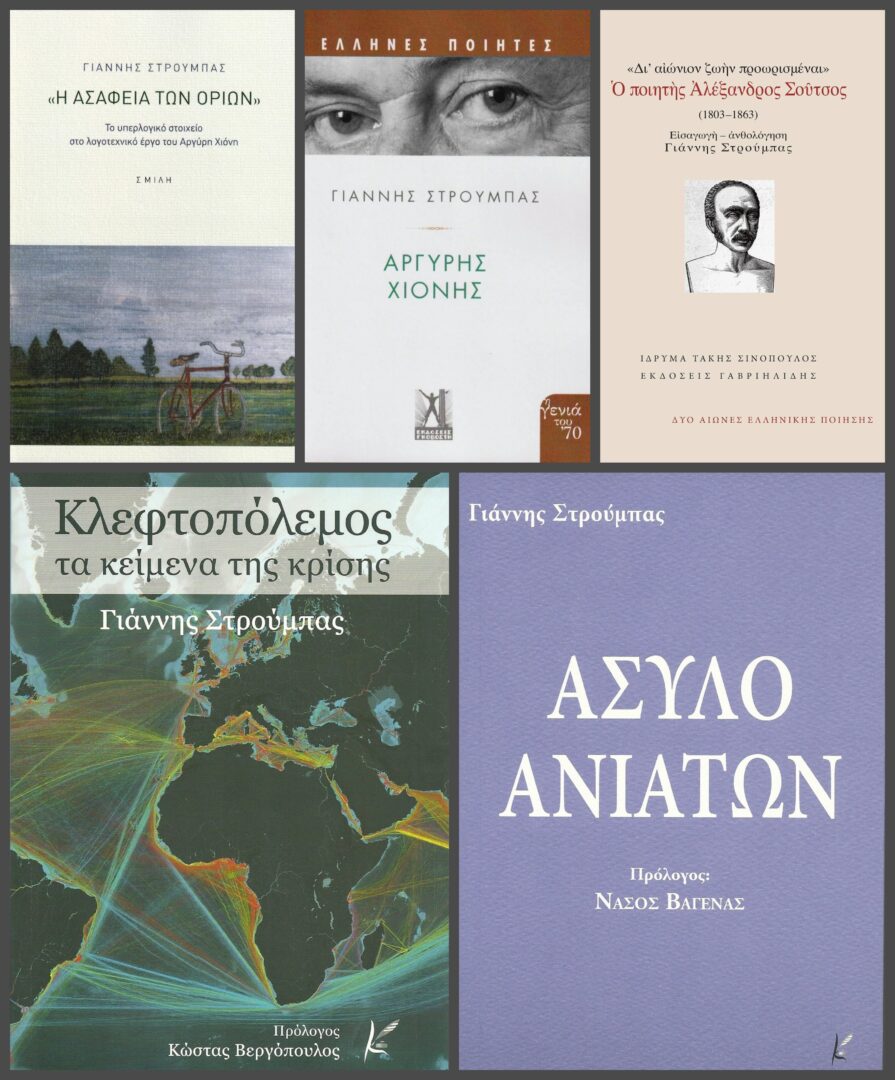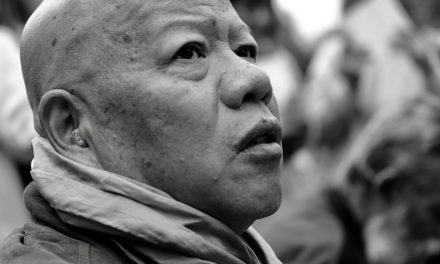Yannis Stroumbas (1973) is a philologist and teaches in secondary education. He writes poetry, essays and criticism. His collaborations are featured in printed and online literary magazines such as Apoplous, (de)kata, Theuth, Mandragoras, Nea Efthini, O Anagnostis, Ta Poietika, and others. Several of his poems have been translated into English and Italian. He has been a member of the Literary Society of Thessaloniki (since 2013) and of the Poets’ Circle (since 2018). He has published four poetry collections, two volumes of essays, two anthologies (on Alexandros Soutsos and Argyris Chionis), and a study (on Argyris Chionis), and has contributions in collective works. His most recent book is the poetry collection Perimeter (Smili Publications, Athens 2023).

Your latest writing venture Perimeter (Smili, 2023) received quite favorable reviews upon publication. Tell us a few things about the book.
Perimeter is a poetry collection set mostly in the subway. In the areas of the metro, underground or above the ground, inside or outside and around it, performances are staged with man as the protagonist, a unique actor, top in every role. The interpersonal relationships that develop define the human psyche and thinking, on a path from the deepest sensitivity to cynicism and crude self-interest. Everything is there, both height and depth. Height and depth are also not unambiguous. The exits are there, the dead ends are there too. The question arises whether there is a way to escape from the “barbed wire”. And if so, what exactly is this “other way”?
The poems in the book constitute in a way a meeting point between an inner world and an external reality, an internalization of the exterior and vice versa. Which are the main themes you delve into?
Crippled, “rolling” feelings; pretentious, feigned immersion; insecurity and panic; diminished social consciousness; sick, dark thinking; internal and external violence; meanness and corruption; pretense and hypocrisy. The external reality shapes the internal world, and this, in turn, is reflected in the external reality and defines its directions. A vicious circle.
More generally, how does literature converse with its surrounding reality? Could literature be used to imagine what could be radically different realities?
Literature is the potential lover of the surrounding reality. It surrounds it, flirts with it, tries to conquer it. But it often experiences rejection. The electronic systems of reality do not work, resulting in the derailment of both reality and literature. That is why sometimes literature also escapes into extralogical, imaginary, supernatural worlds. But reality is always one step ahead of even the most advanced sci-fi literature. For example, the suspicions of astrophysicists that black holes may be the connecting link of different universes, which exist in parallel, are certainly fascinating, but reality itself has long before indicated the existence of parallel universes within societies, with their impersonal human relationships, individualism and the refusal to find a common pace (poem “Parallel universe”).

Υοu have published four poetry collections so far. Are there recurrent points of reference in your books? What has changed and what has remained the same from one book to the next?
Delving into human matters finds its starting point already in my first poetry collection Bear Wear Essentials (2006) and continues to evolve in Perimeter (2023). The multi-faceted man, capable of the best and the worst, is reflected in the three faces of Cerberus in Slender Leper Balance (2010) and meets in Perimeter his true face behind the masks but also a permanent pretense, as the masks refuse to fall. Journeys in place and time, which take place by land and sea means of transport but also through memories in the Travel Self-Agency (2016), continue on the underground routes of the metro and the soul in Perimeter. Modern Greek democracy also travels in my collections, together with its inadequacies, as early as Bear Wear Essentials, to personify in Travel Self-Agency moving, alternatively, by bus or a large displacement car, taking the metro or a city car in Perimeter, having previously returned by ferry from the islands of exile.
It’s quite demanding for an author to detect what happens in his poetic work given that most of the times the respective processes take place imperceptibly. Thus, when a poet is asked a similar question, he too is taken aback and is called upon to realize elements that enter his work on impulse. This concerns both the elements that hold together a poetic work as a whole, as well as those that differentiate it. An element that may differentiate my first collection from the rest is that the gaze of the poetic subject is more strongly directed towards the external environment, while in the following ones the center of gravity shifts to more innermost parts. The setting, again, at Travel Self-Agency is summery and full of light, while in Perimeter it is dim and hazy. Moods, in all collections, represent every form of lighting.
What about language? What role does language play in your writings?
Art may exist in various forms without language. It may take the form of music, silent cinema, sculpture, architecture, pantomime, and more. Yet, literature cannot exist without language; by definition. Language conveys meanings and emotions, either through its direct statements or through its insinuations or even its omissions. Language uses all senses: taste, smell, hearing, sight, touch. And it has already recorded the world around it in my personal writings. The titles themselves of my poetry collections reveal the vital role of language and its amazing potential.

Poetry, essays, anthologies, critical reviews. What do you consider to be the binding thread?
The fascination of literature bonds all forms of writing. Αt times the ordeal takes place through personal journeys or through the journeys of other writers, both older or contemporary; at times through fiction while at others within the existing reality; it may be condensed or analyzed; through personal or collective events. Poetry constitutes the common ground even for seemingly strictly logically organized essays.
*Interview by Athina Rossoglou
TAGS: LITERATURE & BOOKS | READING GREECE













